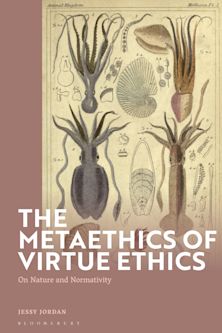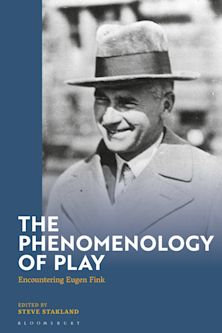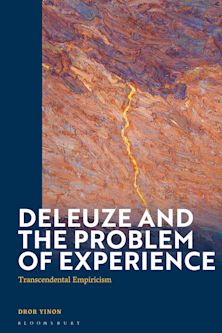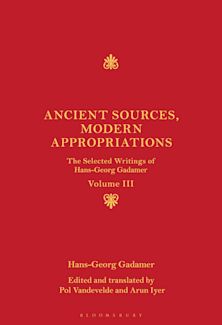- Home
- ACADEMIC
- Philosophy
- Twentieth-Century Philosophy
- Inheriting Walter Benjamin
This product is usually dispatched within 3 days
- Delivery and returns info
-
Free US delivery on orders $35 or over
You must sign in to add this item to your wishlist. Please sign in or create an account
Description
Gerhard Richter examines, in the work of Walter Benjamin, one of the central problems of modernity: the question of how to receive an intellectual inheritance.
Covering aspects of Benjamin's complex relationship to the legacies of such writers as Kant, Nietzsche, Kafka, Heidegger, and Derrida, each chapter attends to a key concern in Benjamin's writing, while reflecting on the challenges that this issue presents for the question of inheritability and transmissibility. Both reading Benjamin and watching himself reading Benjamin, Richter participates in the act of inheriting while also inquiring into the conditions of possibility for inheriting Benjamin's corpus today.
Table of Contents
1. Inheriting Benjamin Otherwise
2. Erbsünde: A Note on Paradoxical Inheritance in Benjamin's Kafka Essay
3. Benjamin's Blotting Paper: Writing and Erasing a Theological Figure of Thought
4. Critique and the Thing: Benjamin and Heidegger
5. The Work of Art and Its Formal and Genealogical Determinations: Benjamin's “Cool Place” between Kant and Nietzsche
6. Going with Time: A Miniature on Time and Photography after Benjamin
Bibliography
Index
Product details

| Published | Feb 25 2016 |
|---|---|
| Format | Paperback |
| Edition | 1st |
| Extent | 176 |
| ISBN | 9781474251235 |
| Imprint | Bloomsbury Academic |
| Dimensions | 9 x 5 inches |
| Series | Walter Benjamin Studies |
| Publisher | Bloomsbury Publishing |
About the contributors
Reviews
-
Engaging and lucidly written, Inheriting Walter Benjamin offers new insights into some of Benjamin's most important theoretical concerns. From inheritance to critique, from the work of art to the critical, dangerous moment of reading, Richter's rhetorical close readings of key passages are one of the great strengths of this work.
MLN
-
Perhaps the greatest contribution of this new book to Benjamin studies is the discovery that Benjamin's reflections on the question of inheritance traverse his entire corpus and that “inheritance” may function as a key concept.
German Studies Review
-
Gerhard Richter brings meaning to the event of inheritance, which affects us in every walk--and failure--of life. The work explores with exquisite integrity what has motivated or tripped us as we are traversed by the experience that Benjamin names and crucially disarticulates. The extent to which Benjamin's text remote controls modern trials of transmissibility and consciousness remains briskly active. Beautifully written, with punch and poignancy, Richter's work commands the authority of the great doubter and accomplished scholar as it constitutes Benjamin's legacy, supplying pleasure and stirring insight to the complex themes, obsessions, and bewilderment of our era.
Avital Ronell, University Professor in the Humanities, New York University, USA
-
With his carefully elaborated notion of literary and cultural inheritance, Gerhard Richter lends rare coherence both to Benjamin's critical task and to the elective affinities that he shared with such crucial contemporaries as Martin Heidegger. In its dynamic fluidity, this study accommodates exciting tangents, including a new take on Benjamin's gravitation to photography as icon and catalyst of modernization. Engagingly written, rigorous, and well-documented, this book comprises a rich new resource.
Henry Sussman, Visiting Professor of Germanic Languages and Literatures, Yale University, USA
-
This is a fascinating and challenging book. Richter's subtle readings demonstrate the theological, political, philosophical, and aesthetic complexity - and contemporary urgency - of Benjamin's concept of inheritance.
Rebecca Comay, Professor of Philosophy and Comparative Literature, University of Toronto, Canada
-
Gerhard Richter is one of a tiny handful of the most important readers of Walter Benjamin. Inheriting Walter Benjamin will not only enhance that reputation; it also shows Richter as a brilliant scholar of an astonishing range of texts and objects ranging from Kant through contemporary photography. This book is a must read for anyone interested in Benjamin-and in innovative and highly suggestive readings of him.
Michael W. Jennings, Class of 1900 Professor of Modern Languages, Princeton University, USA

ONLINE RESOURCES
Bloomsbury Collections
This book is available on Bloomsbury Collections where your library has access.



































